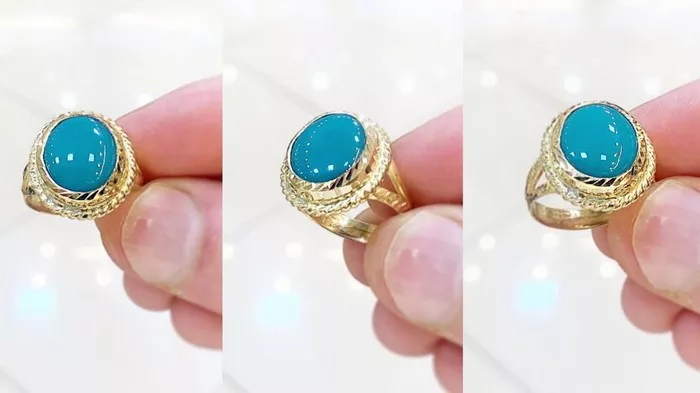Diamond rings hold a special place in the realm of jewelry, symbolizing love, commitment, and luxury. Beyond their aesthetic appeal, the value of diamond rings encompasses various factors that influence their worth in the market. This article delves into the complexities of diamond valuation, exploring the key determinants, market trends, appraisal processes, and considerations that contribute to the overall worth of diamond rings.
Introduction to Diamond Rings
Symbolism and Significance
Diamond rings have cultural, emotional, and symbolic meanings:
Engagement and Marriage: Diamond engagement rings symbolize love, commitment, and the promise of marriage, ingrained in cultural traditions worldwide.
Luxury and Status: Beyond engagements, diamond rings are cherished as luxury accessories, reflecting prestige, wealth, and personal style.
The Value of Diamonds: Key Factors
The 4Cs of Diamond Quality
Diamonds are assessed based on the following criteria, known as the 4Cs:
Cut: The cut of a diamond refers to its proportions, symmetry, and polish, influencing its brilliance and sparkle.
Color: Diamonds are graded on a scale from D (colorless) to Z (light yellow or brown), with colorless diamonds (D-F) being the most valuable.
Clarity: Clarity assesses the presence of internal and external imperfections, known as inclusions and blemishes, which impact a diamond’s transparency and value.
Carat Weight: Carat weight measures the size of a diamond, with larger diamonds generally being rarer and more valuable.
Additional Factors Influencing Value
Shape and Cut Style: Different diamond shapes (e.g., round brilliant, princess, emerald) and cut styles (e.g., cushion, pear, marquise) affect the overall appearance and perceived value.
Certification: Diamonds certified by reputable gemological laboratories (e.g., GIA, AGS, EGL) provide assurance of quality and authenticity, influencing market value.
Market Trends and Demand
Economic and Consumer Influences
Market Fluctuations: Diamond prices fluctuate based on global economic conditions, supply and demand dynamics, and trends in consumer preferences.
Cultural Influences: Cultural trends and traditions impact diamond ring demand, particularly in regions with strong cultural ties to diamond jewelry.
Investment Value
Resale and Investment: Some diamonds, particularly high-quality and rare stones, hold investment value due to their rarity, durability, and historical appreciation in value.
See Also: Does Diamond Bring Good Luck: Things You Need To Know
Appraisal and Valuation Process
Professional Assessment
Qualified Appraisers: Certified gemologists and jewelry appraisers evaluate diamond rings based on the 4Cs, market conditions, and other relevant factors.
Appraisal Reports: Detailed appraisal reports provide an estimated value of diamond rings for insurance, resale, or estate planning purposes.
Factors Considered in Appraisal
Market Comparisons: Appraisers consider recent sales of comparable diamonds to assess current market value.
Setting and Mounting: The design, craftsmanship, and materials of the ring setting also contribute to its overall value.
Pricing and Transparency
Pricing Considerations
Retail Markup: Retail prices include overhead costs, profit margins, and market demand fluctuations.
Wholesale Prices: Wholesale diamond prices reflect supplier costs, market trends, and volume discounts.
Ensuring Diamond Ring Value
Care and Maintenance
Regular Cleaning: Clean diamond rings with mild soap and water to maintain brilliance and remove dirt or oils.
Professional Inspection: Periodically have diamond rings inspected by a jeweler to ensure settings are secure and diamonds are intact.
Ethical Considerations
Responsible Sourcing
Conflict-Free Diamonds: Choose diamonds certified as conflict-free, ensuring ethical sourcing practices and adherence to international standards (e.g., Kimberley Process Certification Scheme).
Conclusion
In conclusion, the value of diamond rings extends beyond monetary worth to encompass emotional significance, cultural symbolism, and aesthetic appeal. Understanding the factors influencing diamond valuation—such as the 4Cs, market trends, appraisal processes, and ethical considerations—empowers consumers to make informed decisions when purchasing, caring for, or evaluating diamond rings.
Whether celebrating milestones, expressing love, or investing in luxury, diamond rings hold enduring value as cherished symbols of commitment and beauty. By appreciating the complexities of diamond valuation and market dynamics, individuals can confidently navigate the world of diamond jewelry, ensuring their diamond rings are not only beautiful but also reflect their values and aspirations.


